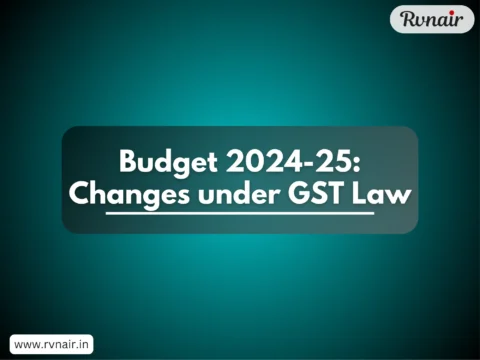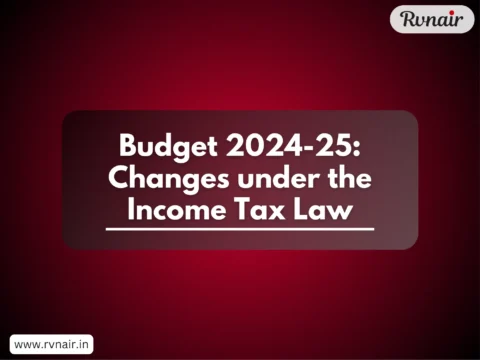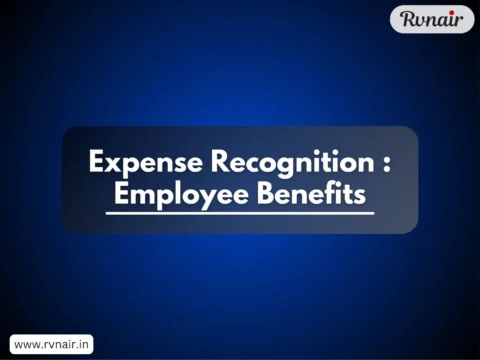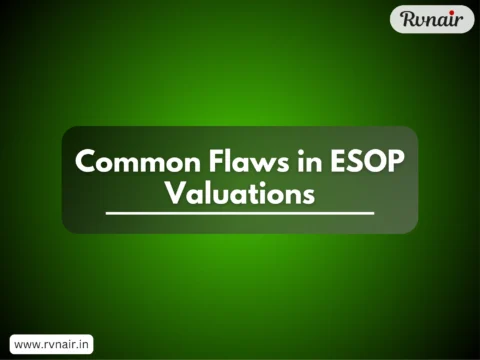Special Economic Zone or SEZ are dedicated geographical regions present in a country, providing businesses with simpler tax and legal compliance. In a manner of saying, SEZ can be considered as a Trade Capacity Development tool, which has been established to boost the economic growth of the nation.
The SEZs are deemed as foreign territory for trading operations and taxation purposes, i.e. any goods or services supplied to the SEZ shall be treated as Zero-Rated supply and attract 0% GST. Conversely, any supply made from the SEZ shall be treated as a normal supply and normal GST rates, as applicable, may apply on such transactions.
In India, prior to the implementation of SEZ, Export Processing Zones (EPZ) were being established for similar gains. However, on account of the infrastructural and bureaucratic challenges faced by EPZ, SEZ was introduced in India on April 1, 2000.
[Trivia: India’s EPZ at Kandla, Gujrat, was the first EPZ to be established in Asia, in the year 1965.]
What is Special Economic Zone (SEZ) under GST?
“As per Section 2(19) of IGST Act, Special Economic Zone (SEZ) shall have the same meaning as assigned to it in clause (za) of Section 2 of the Special Economic Zones Act, 2005.
The specific clause (za) of Section 2 provides that “Special Economic Zone in GST” means each Special Economic Zone (SEZ) notified under the proviso to sub-section (4) of section 3 and sub-section (1) of section 4 (including Free Trade and Warehousing Zone) and includes an existing Special Economic Zone (SEZ).
SEZ Unit vs SEZ Developer
As per the SPECIAL ECONOMIC ZONES ACT, 2005, SEZ Developer means a person who, or a State Government which, has been granted by the Central Government a letter of approval under sub-section (10) of section 3 and includes an Authority and a Co-Developer (the Developer or Co-Developer shall have at least twenty-six percent of the equity in the entity) to create business, residential or recreational facilities in a Special Economic Zone in case such development is proposed to be carried out through a separate entity or a special purpose vehicle being a company formed and registered under the Companies Act, 1956 (1 of 1956).
SEZ units are the units set up for the manufacture of goods or rendering of services.
Domestic Tariff Area (DTA):
It is pertinent to refer clause (i) of Section 2 which defines that “Domestic Tariff Area (DTA)” means the whole of India but does not include the areas of the Special Economic Zones (SEZ).
Exports under SEZ:
Exports defined under Section 2(m) of the SEZ Act as “Export” means-
- Taking goods, or providing services, out of India, from a Special Economic Zone (SEZ), by land, sea or air or by any other mode, whether physical or otherwise; or
- Supplying goods, or providing services, from the Domestic Tariff Area (DTA) to a SEZ Unit or SEZ Developer; or
- Supplying goods, or providing services, from one SEZ Unit to another SEZ Unit or SEZ Developer, in the same or different Special Economic Zone (SEZ).
What is the need for Special Economic Zone?
The Prime objective for the implementation of SEZ was to augment the foreign investment in the country while providing an internationally competitive & hassle-free environment for the exporters in India. The presence of SEZ in a country not only promotes export from a country but also ensures a level playing ground for domestic enterprises and manufacturers, for them to be able to scale to the global competition.
Moreover, a well-located SEZ can help in balancing the growth of the economy and enhance economic activities, such as
- Rapid Economic Growth
- Better Employee Opportunities
- Improved Foreign Export
- Enhanced Brand value
- Better Revenue Collection, etc.,
Read here for E-Invoicing for SEZ.
How does the Special Economic Zone function?
Establishing an SEZ requires massive development program, for which the government requires a huge amount of funds. In order to fulfil these requirements, the government seeks potential partners to tie up. In such scenarios, the government is benefited with the financial capabilities and domain expertise of their partners. On the other hand, the partnered organisation enjoys the right to market and perks of SEZ’s relaxed tax laws to increase their revenue-generating capacity. Leading to a win-win situation for both the parties involved.
What is the procedure to set up an SEZ in India?
- Any individual, partnership firm, company or co-operative society can apply for setting up of Special Economic Zone in India. These zones can be established jointly or individually by Central Government, State Government or any person for the manufacture of goods or for rendering of services or for both or as a Free Trade and Warehousing Zone. Procedure for setting up of Special Economic Zone (SEZ) as provided under section 3 of the Special Economic Zone Act, 2005 are as follow:
- Any person willing to set up a Special Economic Zone has to make a proposal to the State Government. The application for proposal for setting up of Special Economic Zone is to be made in form A. The proposal can be made only after identifying the area for setting up of SEZ. Proposal for setting up of SEZ can even directly be made before the Board.
- In case a proposal is directly made against Board, the person, after getting approval from the Board, is required to obtain the concurrence of the State Government.
- On receipt of the proposal, the State Government shall forward the same to the Board along with its recommendation.
- The Central Government has the right to prescribe various requirement for setting up of Special Economic Zone. The minimum area of land required for setting up of business, terms and conditions for various authorized operations are some of the examples of various requirements which can be prescribed by Central Government.
Currently, the minimum area requirement for setting up of Special Economic Zone are as follow:
| Particulars | Area Requirement |
| Multi-sector SEZ | 1000 hectares |
| Sector Specific SEZ | 100 hectares |
| FTWZ | 40 hectares |
| IT/ITES/handicrafts SEZ Bio-technology/non-conventional energy/gems and jewellery Sector | 10 hectares |
The Board, on receipt of a proposal, may either approve the proposal subject to such terms and conditions as it may deem fit or may even modify or reject the proposal.
Final Action of Board on receipt of the proposal:
- When Board approves the proposal without any modification – In such case, the Board is required to communicate the approval to the Central Government.
- When Board approves the proposal with modification – In such case, the Board is required to communicate the modification to the person or the State Government of the concerned person. Further, if the modification as proposed by the Board is accepted by the person or the State Government, the Board is required to communicate the same to the Central Government.
- When Board rejects the proposal – In such case, the Board is required to record the reason for rejection and communicate the same to Central Government. The Central Government, in turn, would intimate the same to the person or the State Government.
- If everything goes well, the Central Government on receipt of communication would issue a letter of approval on such terms and conditions and obligations and entitlements as may be approved by the Board, to the Developer, being the person or the State Government concerned.
What are the Documents Required for setting up an SEZ?
In order to propose for an SEZ set up, the applicant is required to submit the below-given documents in Form A on the SEZ portal along with required undertaking, affidavit and project report.
- Name of the Applicant
- Proposed Area of Special Economic Zone
- Status of the recommendation of proposal by the State Government, if available.
- Whether the proposal is for formal approval or in-principle approval?
- Whether it is multi-product SEZ?
- Whether it is sector-specific SEZ? If yes, the details of sector there on
- Projected investment in project
- Projected export from the project
- Projected employment generation from the project
- Source of fund of project
- Net worth of the Applicant
- Extent of FDI, if any
- Source of FDI.
What are the benefits of establishing SEZ?
The key benefits of an SEZ are as follows:
- An SEZ unit does not require any license for imports
- SEZ Units are only required to achieve Positive Net Foreign Exchange, which is calculated cumulatively for a 5 year period from the commencement of production
- They have full freedom for subcontracting
- No routine examination by customs authorities of export/import cargo
- SEZ Developers /Co-Developers and SEZ Units enjoy Direct Tax and Indirect Tax benefits as prescribed in the SEZs Act, 2005.
What are the exemptions/entitlements to SEZ Developer?
The following exemptions are available for SEZ Developers:-
1. Payment of Customs duty for goods or services imported into SEZ for its operations and goods exported or services provided from SEZ outside
India.
2. Payment of Excise duty for goods brought from Domestic Tariff Area to SEZ for its authorized operations.
3. Provided the SEZ is operationalized by 31.03.2017, developers are exempted from payment from Income Tax under the Income Tax Act as
per rules in force, as follows:-
Income Tax exemption for a block of 10 years in 15 years under Section 80-IAB of the Income Tax Act. Block of 10 years will be selected at the
discretion of the developer
4. Payment of Central Sales Tax for its authorized operations.
5. Payment of Service Tax under Chapter V of the Finance Act 1994 on taxable services consumed for its authorized operation.
6. Payment of VAT for the purchases made within the State of Tamil Nadu under TN VAT Act.
What are the exemptions / entitlements available for SEZ units?
1. Payment of customs duty for goods or services imported into SEZ for its operations and goods exported or services provided from SEZ outside India.
2. Payment of Excise duty for goods brought from Domestic Tariff Area to SEZ for its authorized operations.
3. Provided that the unit commences commercial operations by 31.03.2020, SEZ Units are exempted from payment from Income Tax and other taxes
under the Income Tax Act as per rules in force, as follows:-
• 100% Income Tax exemption for SEZ units under Section 10AA of the
Income Tax Act for first 5 years, 50% for next 5 years thereafter and 50% of
the ploughed back export profit for next 5 years. Income tax benefit as
mentioned above is available on the profits out of exports made out of India.
4. Payment of Central Sales Tax for its authorized operations.
5. Payment of Service Tax under Chapter V of the Finance Act 1994 on taxable services consumed for its authorized operation.
6. Payment of VAT for the purchases made within the State of Tamil Nadu under TN VAT Act.
7. Units are also entitled for MEIS/SEIS scrips subject to fulfilment of eligibility criteria prescribed for the scrips.





